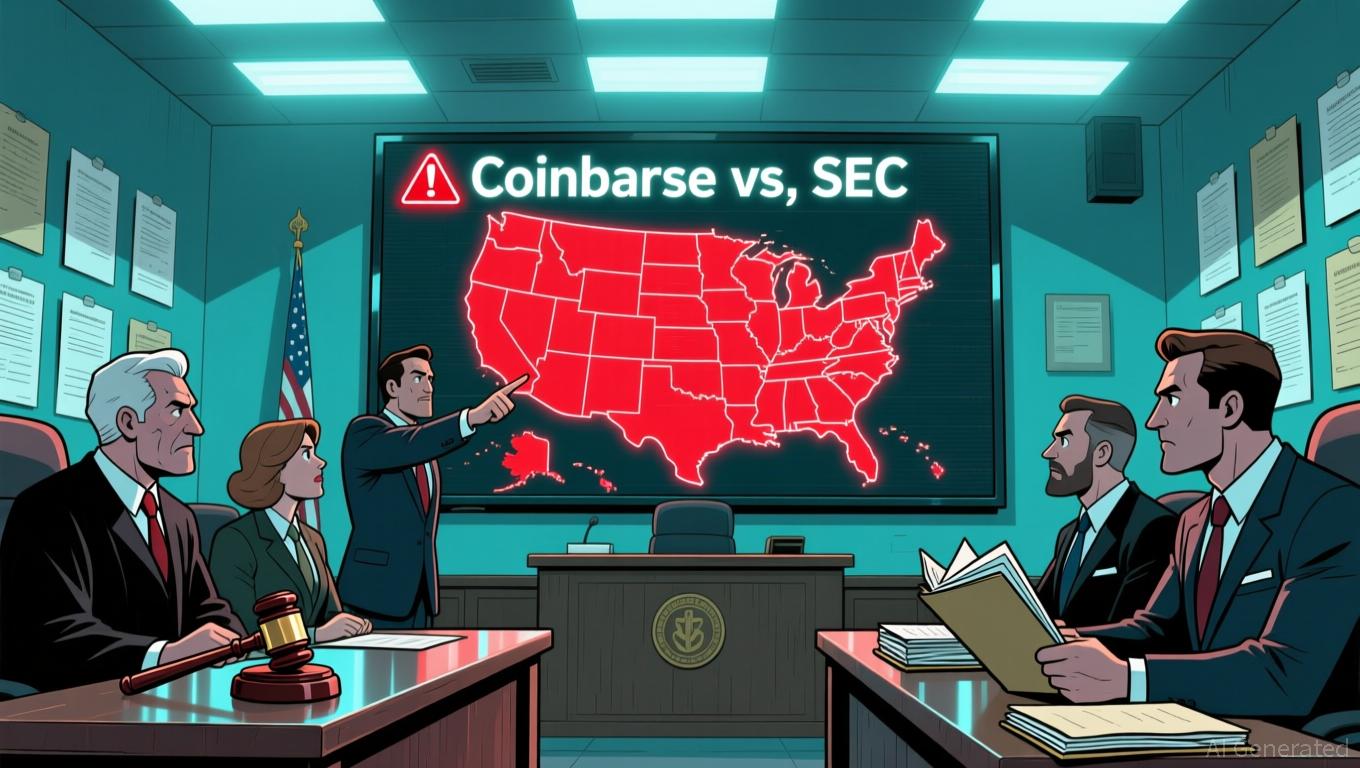Fed Split: Inflation Hardliners and Employment Advocates Disagree on Interest Rate Reduction
- U.S. Federal Reserve faces uncertainty ahead of December meeting due to delayed government data from the shutdown. - Officials split between rate-cut advocates (e.g., Mary Daly) and hawks (e.g., Susan Collins) over inflation risks and labor market gaps. - Market expectations now favor a 55% chance of a December rate cut, down from earlier confidence amid cautious official statements. - Fed relies on private-sector indicators to assess inflation and employment, but lacks comprehensive official data for cl
The U.S. Federal Reserve is grappling with increased uncertainty ahead of its December policy meeting, as essential economic indicators—such as October’s employment and inflation data—may be postponed or unavailable due to the recent government shutdown.
Fed policymakers now face a delicate challenge, weighing inflationary threats against concerns about the job market.
This split is reflected in market sentiment, with the likelihood of a December rate cut now at about 55%, a decline from earlier optimism
With official data unavailable, the Fed has turned to alternative sources, such as private surveys and anecdotal reports, to assess economic trends. However, these alternatives do not offer the same depth as the delayed government releases. For example,

This situation highlights the broader difficulties the Fed faces as it tries to steer a fragile economy. Some members, like Daly, are open to rate cuts if justified by new information, while others, such as Collins, insist that holding rates steady is crucial for keeping inflation in check. The debate is further complicated by political factors:
As the December 9-10 meeting nears, the Fed’s ultimate decision will depend on whether any new data—if released—clarifies the outlook for inflation and employment. For now, the lack of October’s reports leaves officials in a difficult spot, and markets are preparing for a policy decision as uncertain as the data itself.
Disclaimer: The content of this article solely reflects the author's opinion and does not represent the platform in any capacity. This article is not intended to serve as a reference for making investment decisions.
You may also like
UK Faces Stablecoin Challenge: Balancing Innovation and Financial Security
- UK faces pressure to launch GBP stablecoin to compete globally, urged by ClearBank CEO Mark Fairless at Web Summit 2025. - BOE proposes 40% central bank deposit reserves for GBP stablecoins, with £20k/£10m user/business limits to mitigate systemic risks. - Critics argue 40% unremunerated reserves could stifle innovation, putting UK issuers at disadvantage compared to US/EU frameworks. - Regulatory balancing act emerges as UK aims to position itself as crypto innovation hub while maintaining financial sta
Morpho Surges to Record Profits but Faces a Sudden Downturn
In Brief Morpho ecosystem reached $370,000 in curator fees despite liquidity constraints. Steakhouse Financial led with $115,000 revenue, MEV Capital ranked third last week. MEV Capital experienced first recorded loss over $65,000 due to market changes.

Crypto and Technology Industries Undergo Transformation Amidst Evolving Laws, Regulations, and Leadership Changes Reshaping Industry Norms
- Coinbase faces legal and strategic challenges, including a $1B insider trading lawsuit and a Delaware-to-Texas "DExit" migration to reduce tax burdens. - Bermuda positions itself as a crypto regulatory leader by licensing DerivaDEX, a DAO-governed derivatives exchange with institutional-grade security and sub-5ms trade speeds. - C3.ai's founder-CEO Thomas Siebel resigns unexpectedly, creating leadership uncertainty and prompting speculation about a potential sale amid competitive AI market pressures. - T

Bitcoin Updates Today: Czech National Bank's Groundbreaking Crypto Experiment: Opening Doors to Token-Based Finance
- Czech National Bank invests $1M in crypto portfolio including Bitcoin for testing operational, regulatory impacts. - The pilot aims to explore blockchain's role in future finance without conflicting with ECB policies. - Global central banks increasingly experiment with digital assets, reflecting evolving monetary strategies.